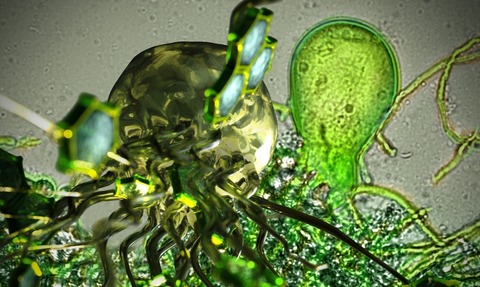Bovine biomass could ‘revolutionise’ renewables
22 Feb 2016

A team of UK researchers at Harper Adams University is looking at how fungi found in a cow’s stomach could revolutionise biomass technology.
Michael Theodorou, who leads the Agricultural Centre of Sustainable Energy Systems (ACSES) at Harper Adams University, said the team is looking to use renewable plant biomass resources for chemical and fuel production.
We need to invest more resources to study this group of relatively unknown microorganisms. They may hold the key to the renewable technology of effective biomass conversion
Lead researcher Michael Theodorou
Traditional biomass processes use a genetically-modified solution, Theodorou said.
However, the process is costly due to the need for an expensive pre-treatment that helps plant biomass to be successfully digested, he added.
The pre-treatment process is then followed by the fermentation of released sugars by yeast to produce products such as bio-ethanol.
“The objective of our work was to find an alternative, more straight-forward platform, mimicking the conversion of plant biomass to useful products in nature,” Theodorou said.
According to Theodorou, the research team has so far identified “hundreds” of enzymes from the gut fungi, which he said have commercial biotechnology potential.
“It is because these fungi are able to survive in such a highly-competitive microbial ecosystem, where a myriad of protagonists seek to degrade plant biomass, that we believe they are so effective at their job,” Theodorou said.
“In the herbivores’ digestive system, these microorganisms convert plant biomass to sugars which are further processed as energy sources for the animal. Moreover, the gut fungi are able to achieve plant biomass conversion effectively and without the need for chemical pre-treatment.”
According to the researchers, certain enzymes found in a cow’s stomach are “substantially better” than the current solution at converting plant biomass to sugars.
“We need to invest more resources to study this group of relatively unknown microorganisms. They may hold the key to the renewable technology of effective biomass conversion,” Theodorou said.
“Their full potential must be explored and exploited.”
A full account of the research has been published in the journal Science.

